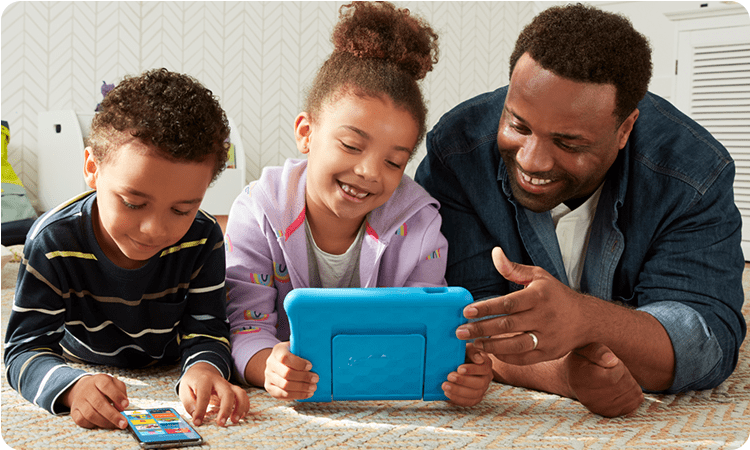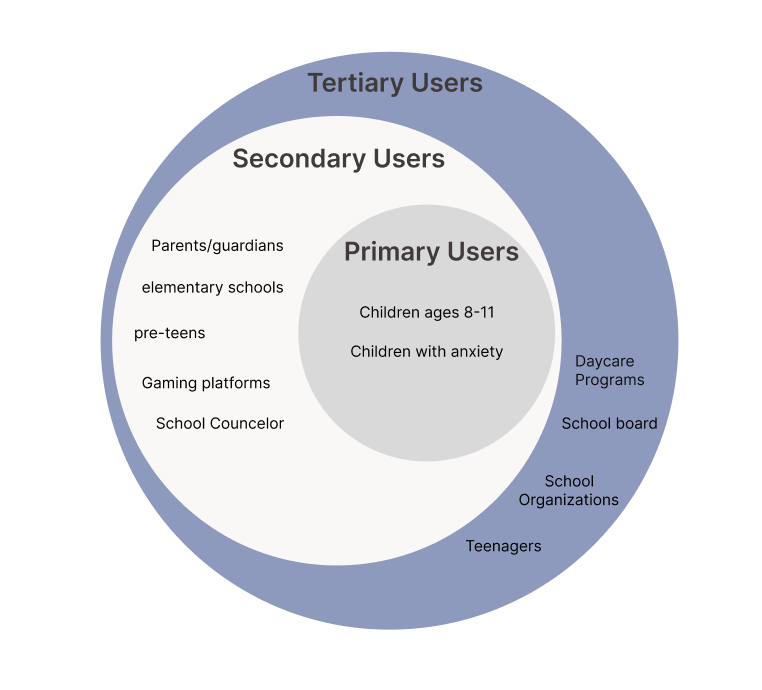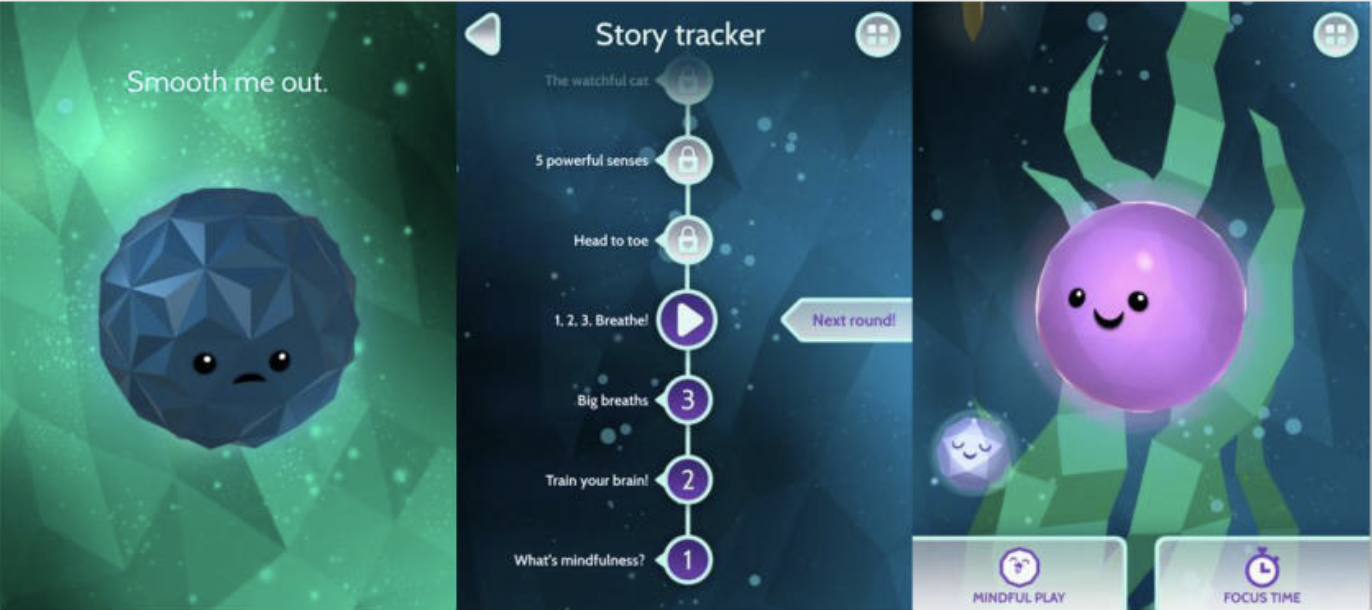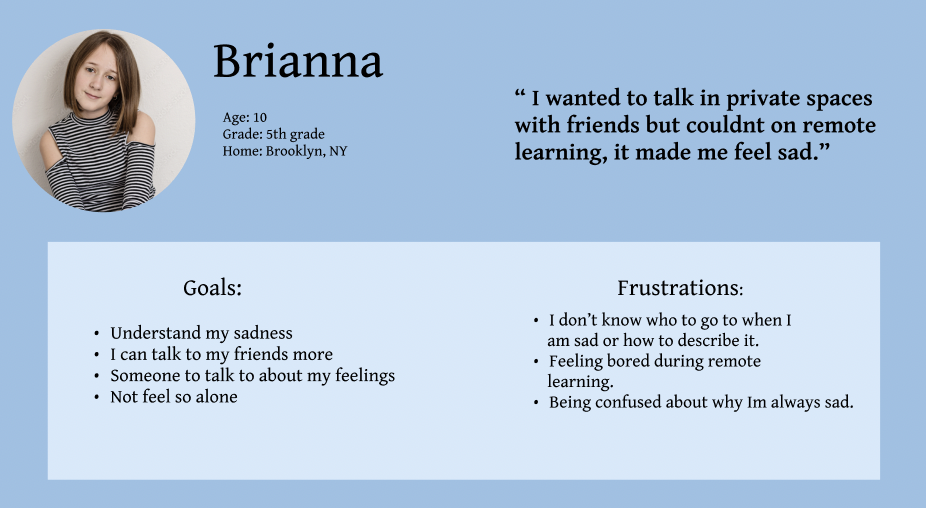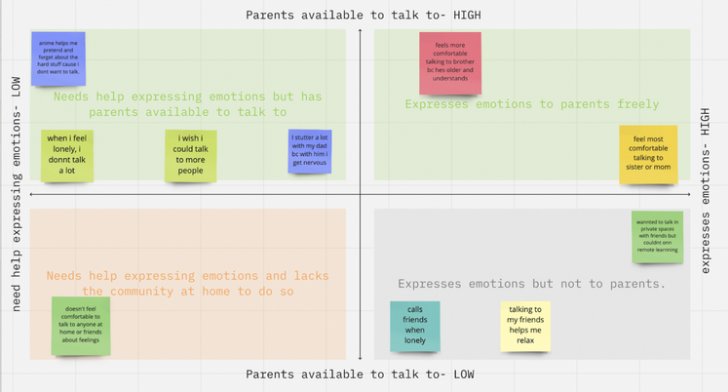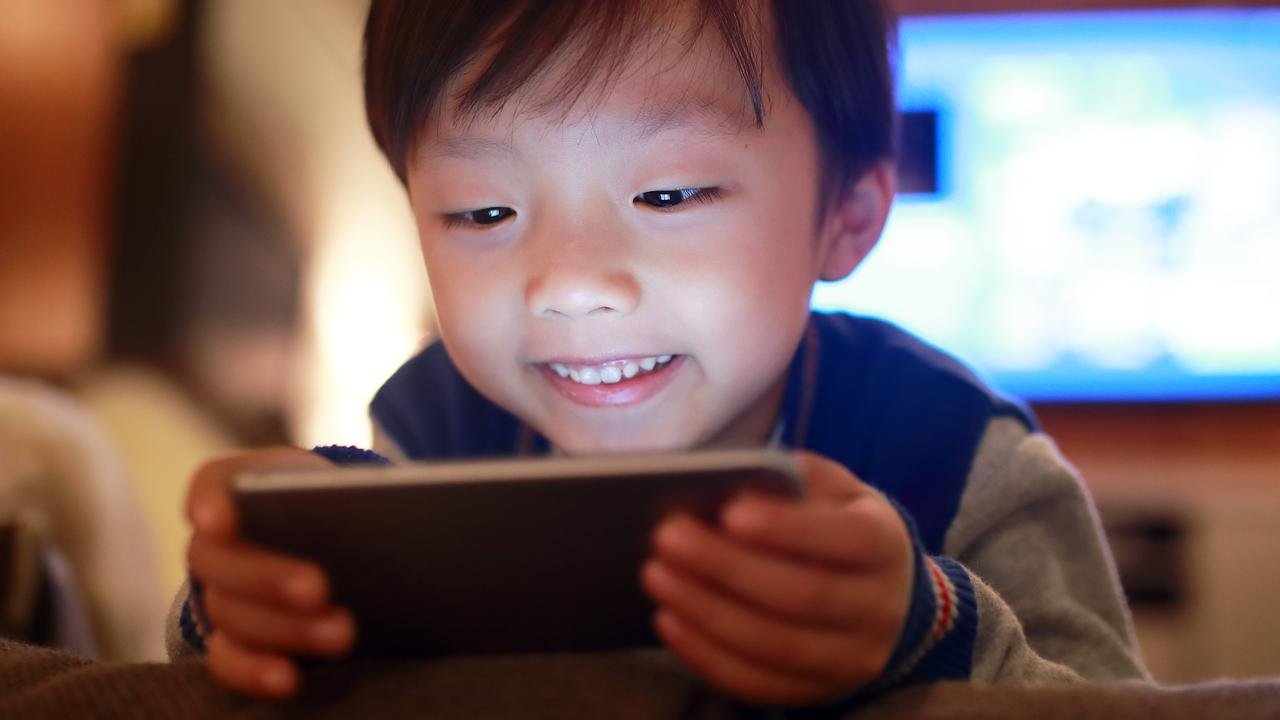
Droplet
Games that actually make you feel better
Context
According to RegisCollege.edu, kids are depending on technology a lot more after 2020 and therefore furthering issues with mental health, emotional and attention issues, physical health, and social skills.
During and after COVID, children were confined to a remote setting, growing an attachment to electronic devices.
Problem
Many kids who spend their time online just want to have a quick form of distraction and entertainment.
However, a lot of these apps or games distract and entertain, but don’t target or address the main issue as to why the child is needing that escape outlet in the first place.
Solution
Droplet, will give users the option to continue to soothe themselves through tech, while still working on the issues at hand. Droplet is a place where the user can still be entertained with games and activities, but the activities involve practices such as journaling, meditation, words of affirmation, self-help books, and more. These activities and achievements could also be shared with approved friends on the app and the user could have a sense of community that encourages one another to continue their progress.
Secondary Research
I began this research with an investigation of what tools are currently on the market and who might be the primary users. Stakeholder mapping identified both indirect and direct users with relevant experience to childrens gaming/wellness apps.
What tools are available?
While there are some applications that are geared toward children , there is a lack of competitors making products with the focus of education and various forms of mental health outlets. We conducted a competitor analysis on 2 competitors, analyzing what they offer and how Droplet could offer more.
Mindful Powers is a meditation app for grade schoolers. The meditations are done through something called “stories” and it takes you on a track from one story to another to guide the meditation experience, along with a circular character that accompanies the user on the journey. Droplet was wanting to give the user more options than just meditation. Mindfulness could be practiced in multiple ways and providing children with options to explore what works for them, was something of importance in the creation of Droplet.
Competitor 2: Three Good Things: A Happiness Journal
Three Good Things is a journaling app for children. The app is intended to help kids build mindfulness through daily journaling, specifically writing 3 good things that had occurred that day. The user is able to look back at past journal entries and even set reminders through the app to journal each day. Droplet incorporates similarities within the journaling section but once again, Droplet includes more than just one outlet for the user and recognizes the importance of choice.
This case study was completed by the Droplet team, made up of designers, researchers and engineers, to bring this app to life and ready to use for children and parents.
The work done with Droplet consisted of understanding the scope of the project and the needs of the user through research and translating the new design into a cohesive interface.
Reflection
Post competitive analysis, the main questions that occurred during the secondary research were what can be done to support children and their mental health? How can we remove the anxieties of society for them? These questions helped create a path of insights and direction moving towards our primary research.
Discovery Research
10 interviews
I transitioned into exploratory research to investigate users needs and wants. I facilitated 10 interviews with elementary school children ranging in the ages of 8-11.
Through this research I explored:
Devices each child utilized
Ways they communicated in regards to their feelings before and after playing games/screen time
What times they generally had screen time
How they felt when not having screen time
Analysis
Through affinity diagraming and thematic analysis, I identified key themes and salient points.
Their friendships are a top priority and the main outlet.
They wish to have more control over their emotions but don’t know how.
Their parents are not often seen as safe options to be emotionally vulnerable with.
Social Media/Video Games are used as their main form of coping.
Pain Points
01
Children don’t know how to express what they’re feeling
Core Needs
Users Matrix
User Persona
Kaylee is 8 years old , lives in Orlando and is a second grade student in elementary school.
She has two older brothers and lives at home with her mom and dad.
Kaylee has been going to school daily, but has been home doing remote learning when there are COVID outbreaks in her school.
This makes her sad, being stuck at home and not being able to talk to her friends during class time. When she is done with class, she calls her friends or plays games such a Roblox, but it still unhappy and doesn’t feel comfortable talking to her brothers. She is looking for something that can help her figure out her feelings.
How might we help children find a space set aside solely for the purpose of learning about their own emotions?
Reflections
02
Screen time is their only outlet
03
Children have a difficult time connecting with one another due to social anxieties
The target users for this product are children within the age range of 8-11. This user is a child who is curious and lacks the ability to express themselves emotionally.
A primary concern of this user is the lack of knowledge of mental health and not knowing where to go.
I had to pivot many times throughout my research. My findings challenged my initial hypotheses, but I was able to build relevant research as a result.
As a result of my UX research, I moved away from the idea of a journaling app and proposed Droplet should act as a gaming app that allows journaling as an option.
